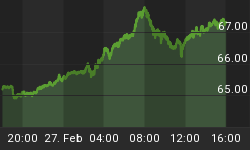As is usual at this time of the year our economic pundits are keeping a sharp eye on consumption. Any apparent decline in spending is gleefully pounced on as evidence that the Bush economy is going south. But as I have been pointing out since day one, consumer spending does not drive an economy -- business spending does that.
Without exception the boom-bust cycle largely occurs in the higher stages of production. It therefore follows that consumer spending is not a leading indicator. Not only that, consumer spending can continue to increase even when an economy is in recession. The following chart was presented by Mark Skousen.

Even a casual look reveals that the 1980, 1991 and 2000 recessions did not even cause a ripple in consumption. The graph below is for the Australian economy and covers the same period as Skousen's graph. Note that the very severe recessions of 1982-83 and 1991-92 do not even register.

Early 1999 is of particular interest. It was then that business investment took a sharp turn for the worst, after which the business climate deteriorated. The March quarter for 2001 showed that manufacturing output had fallen by 2.2 per cent. This decline was followed by successive falls in the December and September quarters. In addition, output had been falling during the previous 12 months.
Firms were cutting back on investment, shedding labour, introducing short-time working, and profits were declining. Yet the graph clearly shows that this drop in business spending and output did not even cause a hiccup in consumer spending. Without a doubt this data validates the Austrian analysis.
A warning is necessary at this point. Austrian economics does not claim that consumption spending never falls, only that business spending is the area that suffers the greatest drop. Nevertheless, even when there is a deflation -- as used to be the case up to the 1930s -- consumption spending always rose relative to business spending. And this is precisely what the above graphs show.
It's sad but true that our economic commentariat will deliberately ignore this statistical evidence. Anything but admit that they have been -- and still are -- peddling a gross economic fallacy.















